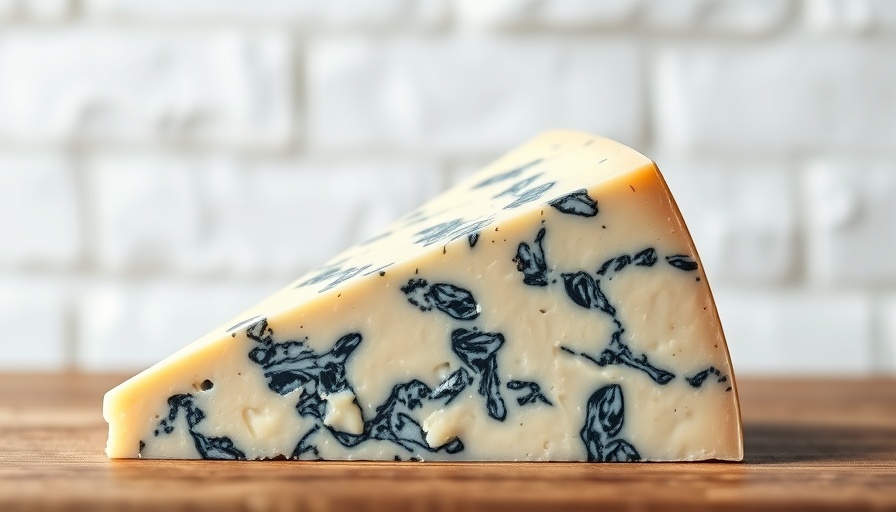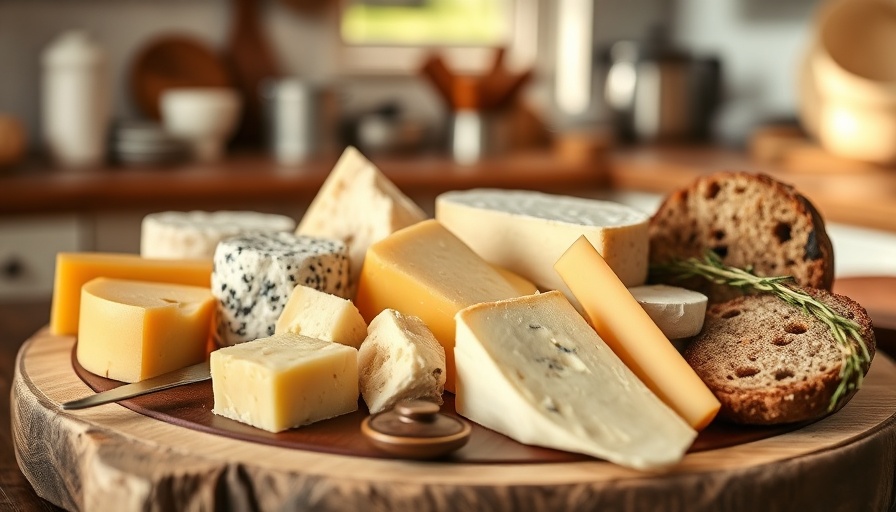
The Surprising Link Between Dairy and Your Dreams
Many of us enjoy a late-night snack, whether it's a cheesy slice of pizza or a bowl of ice cream. But recent research suggests that indulging in dairy products before bedtime might not just impact our physical health—it could also disrupt our sleep and the very dreams we experience. In fact, a study conducted among university students in Canada found that nearly 40% of respondents felt that certain foods impacted their sleep. Among these, dairy emerged as a notable offender, with 20% specifically indicating it could trigger bizarre dreams.
Why Dairy Could Be Disturbing Your Sleep
The study revealed that 5.5% of these students believed that what they consumed influenced their dreams, particularly highlighting dairy as a common culprit. This might stem from the physiological effects of lactose intolerance, a condition that affects many individuals. Participants who identified as lactose intolerant frequently reported experiencing nightmares, particularly if they also suffered from symptoms like bloating and cramps after consuming dairy.
The Gut-Brain Connection: How Food Affects Dreams
It turns out there's a fascinating gut-brain axis at play here. The discomfort caused by dairy can lead to a lighter sleep stage, where vivid and often negative dreams are more likely to occur. This suggests that the physical sensations triggered in our bodies due to dietary choices can translate into emotional undertones in our dreams—particularly feelings of anxiety or distress. With findings indicating that diets rich in processed and sugary foods correlate with poor sleep quality, it's essential to examine what we consume before hitting the pillow.
Beyond Dairy: A Holistic Approach to Sleep
The implications of these findings extend far beyond just dairy. A broader look at our eating habits is crucial for improving sleep quality. A 2015 survey found that 18% of Canadian undergraduates connected their food choices to their dream experiences, solidifying the belief that our diet plays a significant role in how well we sleep. Reducing late-night snacking, particularly on high-sugar and high-fat foods, can help mitigate sleep disturbances. Consider adopting a more balanced evening diet—perhaps embracing low-lactose dairy or even exploring gut-friendly options like the Mediterranean diet, which has been associated with not only better sleep but also enhanced mood overall.
Practical Tips for Better Sleep and Dream Quality
If you find yourself haunted by nightly terrors, it might be time to reassess your evening routine. Here are some practical tips to enhance your sleep and recovery:
- **Mind Your Dairy**: Consider reducing dairy consumption before bedtime, opting for low-lactose alternatives or other snacks that are easier on the digestive system.
- **Plan Your Meals**: Try to finish eating at least two to three hours before going to sleep to give your body ample time to digest.
- **Embrace a Balanced Diet**: Incorporate more whole foods such as fruits, vegetables, and whole grains, while reducing saturated fats and sugar.
- **Stay Hydrated**: Ensure you're drinking enough water throughout the day to keep your body functioning optimally.
- **Manage Stress**: Engage in relaxing activities before bed—like reading or meditative breathing—to calm your mind and create a peaceful sleep environment.
Take Action for Restful Nights
As science increasingly supports the idea that what we eat can shape our dreams and consequently impact our overall health, it's vital to make conscious decisions about our nighttime snacks. By being mindful of our dietary habits and building a foundation of healthy eating, we may find that restful nights and pleasant dreams are within our reach. So next time you think about reaching for that late-night cheese platter, consider how it might affect your sleep and dreams, and perhaps choose a healthier alternative.
 Add Row
Add Row  Add
Add 




 Add Row
Add Row  Add
Add 

Write A Comment